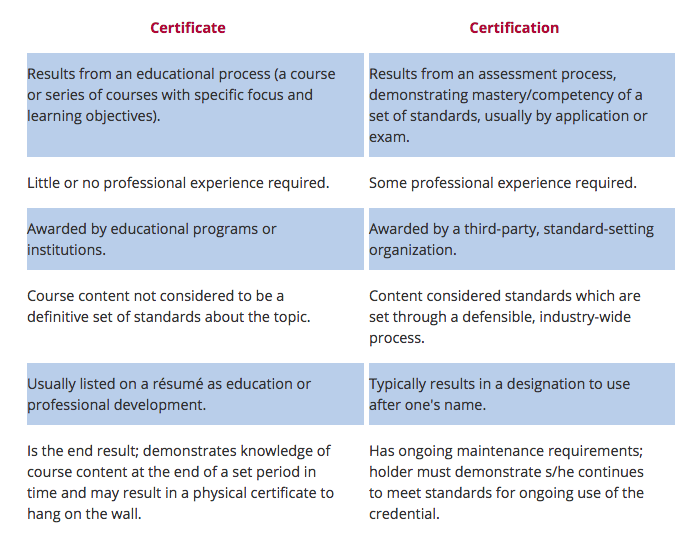An issue that comes up repeatedly is confusion between receiving a certificate of completion and being certified. I notice it when listening to people discuss their qualifications, and while it may seem like semantics, it’s a pretty critical point. In order to be certified (as a forensic nurse, a SANE, what have you), you must complete an official certification process. In our field, that may be one offered by your state, and there are a small number of states that actually require certification for sexual assault nurse examiners (usually only RNs; APNs, PAs and physicians are frequently exempt from state certifications), or more likely, it’s through successful completion (and subsequent maintenance) of board certification (e.g. the SANE-A or SANE-P; the AFN-BC).
Here are things clinicians may do that are important to practice, but do not make them certified:
- Complete a certificate course (for sexual assault or any other area in forensic healthcare)
- Complete the clinical requirements that accompany a certificate course
- Successfully demonstrate basic competencies to a program’s supervisor to begin practicing autonomously
I think this generally provides a good visual (found here, but versions also can be found on a variety of websites):

It’s a small and easy mistake to make, confusing the two concepts, but if you wish to represent yourself accurately, it’s important to know the difference.
[Related: What credentials can I list after my name?]


3 replies on “Certificate vs Certification”
I like the simplicity of the chart, Jen, thanks!
Thank you so much for discussing this topic. I am constantly having this conversation with clinicians and find the ANCC Credentialing brochure is a great resource for individuals to understand where to start putting all the letters.
Thank you for this resource! I have a presentation today where I’m championing this exact issue with our BOD. Your timing is excellent!